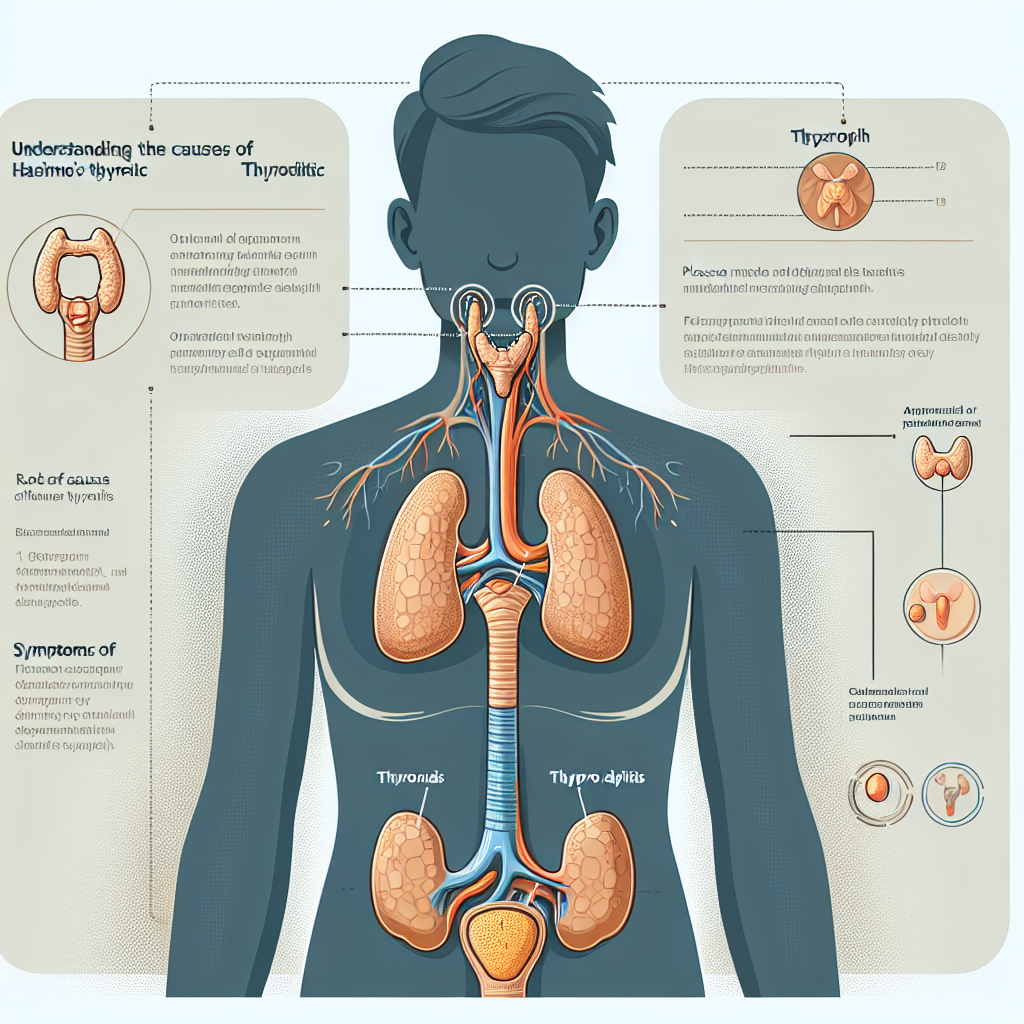Introduction
Hashimoto’s Thyroiditis, also known as chronic lymphocytic thyroiditis, is an autoimmune disease where the body’s immune system attacks the thyroid gland. This attack can lead to hypothyroidism, a condition where the thyroid doesn’t make enough hormones for the body’s needs. The thyroid is a small but crucial gland in the neck that affects your metabolism, heart rate, and body temperature, among other things. Understanding the causes and symptoms associated with Hashimoto’s Thyroiditis can be an important step in seeking timely treatment and managing the disease effectively.
Causes of Hashimoto’s Thyroiditis
Hashimoto’s Thyroiditis is an autoimmune condition, which means it’s caused by the body’s immune system mistakenly attacking healthy cells. In the case of Hashimoto’s, the immune system targets the thyroid gland causing inflammation and interfering with its ability to produce hormones. The exact reason why the immune system does this remains unclear, but it’s believed to involve a combination of genetic and environmental factors.
Genetically, researchers have found people with a family history of Hashimoto’s Thyroiditis or other autoimmune diseases are more likely to develop it. Certain genes associated with the immune system have been linked to a higher risk of getting Hashimoto’s.
Environmental factors can also trigger the onset of Hashimoto’s. These can include certain viruses or bacteria, high iodine levels in the diet, hormonal imbalances, pregnancy, and long-term stress.
Symptoms of Hashimoto’s Thyroiditis
Hashimoto’s Thyroiditis can be challenging to diagnose because its symptoms often mirror those of other diseases, and they may evolve gradually over many years. Common symptoms include:
- Constant fatigue
- Weight gain
- Sensitivity to cold
- Dry skin
- Memory problems
- Depression
- Slow heart rate
- Pale, puffy face
- Constipation
Overtime, the chronic inflammation caused by Hashimoto’s Thyroiditis can result in the thyroid becoming large – a condition known as goiter. While the goiter is usually not painful, it can make swallowing difficult.
Conclusion
In summary, Hashimoto’s Thyroiditis is an autoimmune condition causing the immune system to turn against the thyroid gland. Its causes are not entirely understood, but they involve a combination of genetic and environmental factors. Symptoms can be mild to severe, usually occur gradually, and often mimic those of other health conditions making it difficult to diagnose. Awareness and understanding are crucial in disease management and if you notice the signs and symptoms of Hashimoto’s Thyroiditis, consult your healthcare provider promptly.
Frequently Asked Questions
- 1. Is Hashimoto’s Thyroiditis curable?
- There is no cure for Hashimoto’s Thyroiditis, but the condition can be managed effectively with medication that replaces the thyroid’s hormones.
- 2. Can Hashimoto’s Thyroiditis lead to other health problems?
- If left untreated, Hashimoto’s disease can cause complications such as heart problems, mental health issues, and in severe cases, a life-threatening condition called myxedema, which is an extreme form of hypothyroidism.
- 3. Who is most likely to get Hashimoto’s Thyroiditis?
- This disorder can affect anyone at any age but is most common in women aged between 40 and 60 years old.
- 4. Is there a link between diet and Hashimoto’s Thyroiditis?
- Some research indicates that certain foods, such as those with high iodine content, can trigger Hashimoto’s. However, more research is needed to understand the link fully.
- 5. Can stress cause Hashimoto’s Thyroiditis?
- Severe stress may trigger the onset of Hashimoto’s Thyroiditis in some people, but the exact relationship is not fully understood.

Leave a Reply